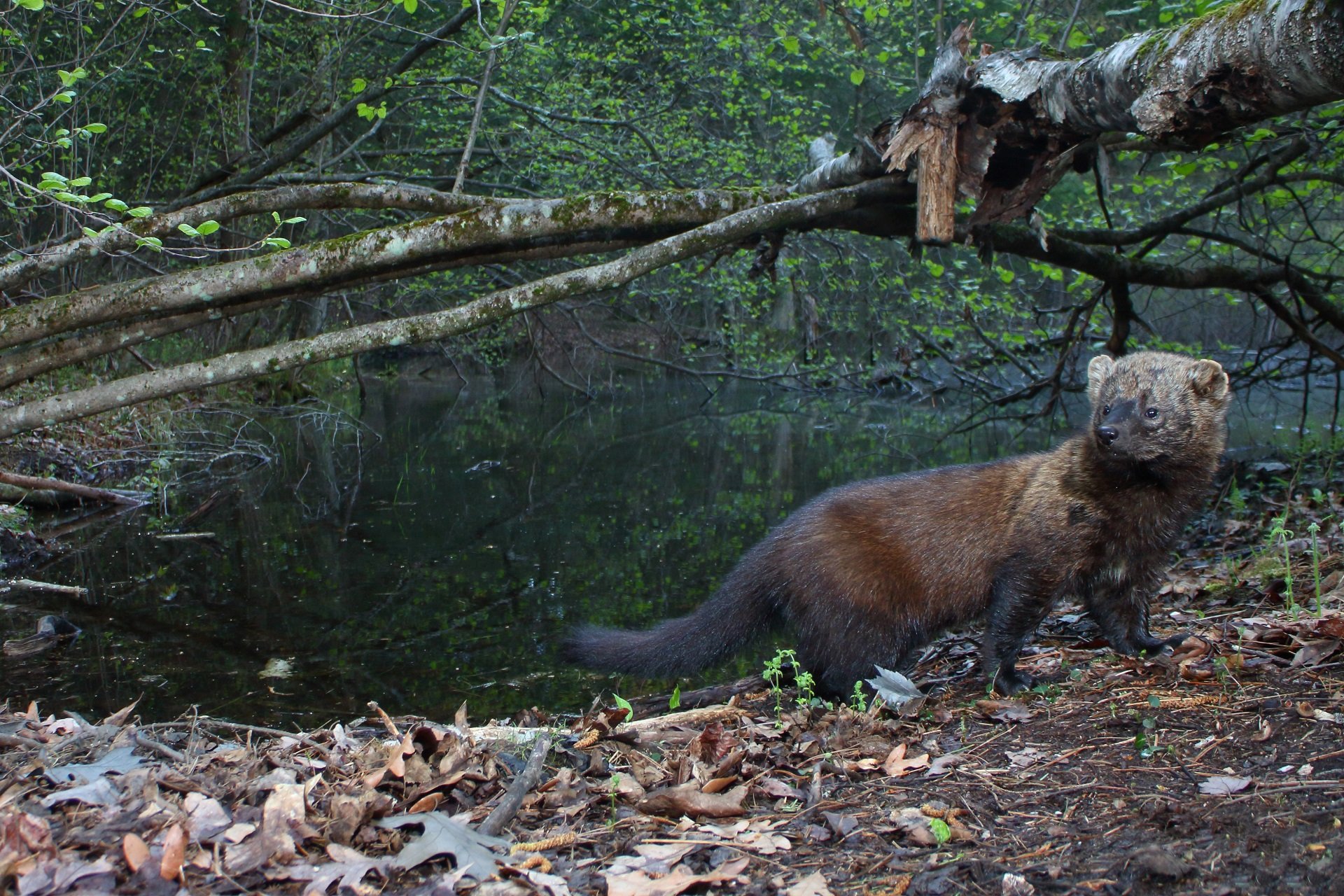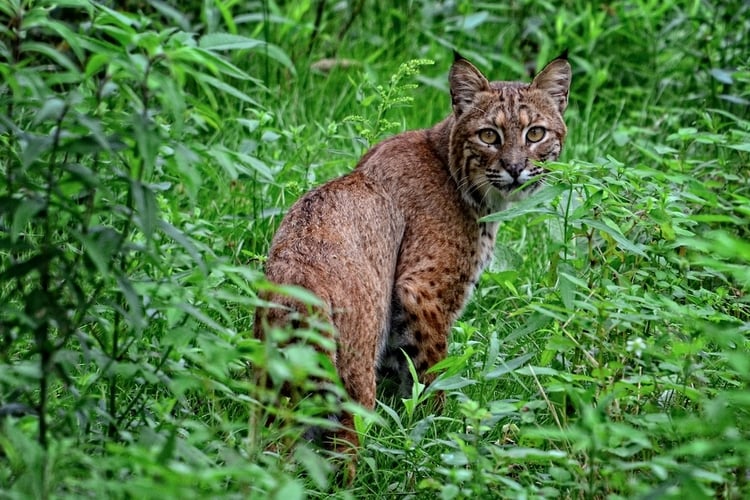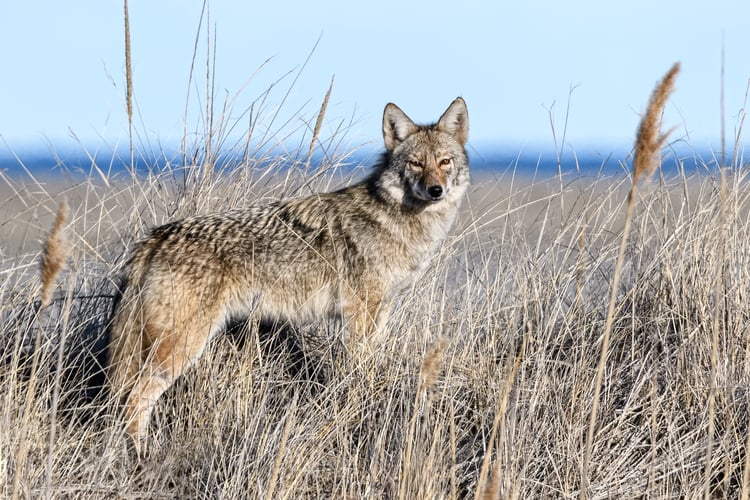There are some species of wildlife we can see almost every day–from a rabbit munching on plants to a squirrel climbing a tree. Others, like the bobcat, fisher, or coyote, are a bit more elusive. Learn more about each of these shy creatures and what to do if you do encounter one.
The Only Wild Cat in Massachusetts
Bobcats, marked by their short “bobbed” tail, live in a range of habitats, with the highest populations in the central and western regions of Massachusetts. They’re roughly twice the size of a domestic house cat (from 15 to 35 pounds) but still smaller than most other wild cats found in the US.
Even though these cats are very wary of humans, small pets, livestock, and chickens can be on their diet. If there’s sightings in your area, be sure to keep your animals in a secure pen or indoors at night. If you see one in the wild, make sure you keep your distance and appreciate them from afar.
Weasels That Don’t Actually Fish
Despite being called “fisher cats,” fishers aren’t feline nor do they catch fish. Fishers look like most other weasels, with a sleek body (from 32-40 inches) and a long tail that makes up a third of their total length. These predators are equipped with retractable claws to help them hunt on the ground and roost in tall trees.
In the late 19th century, fishers were almost completely eliminated from southern New England because of forest destruction and unregulated trapping. After reintroduction to Massachusetts in the 1950s, fishers are now widespread across the state.
They prefer to keep their distance from humans but can attack free-roaming domestic birds, cats, and rabbits. They are also one of the only natural predators to eat porcupines. To help avoid fisher conflicts, make sure to clean the seeds below birdfeeders (which may attract small rodents), secure your garbage, and keep your pets and livestock enclosed at night.
Not Your Average Canine
Eastern Coyotes are a resilient species that have adapted to live in almost any landscape, including cities. These canines look like medium-sized dogs (23-26 inches tall) but have longer and thicker fur.
You can hear coyotes howling and yipping at night all year round, as they don’t hibernate. Coyotes are opportunistic feeders, meaning they will eat whatever food is available, including small animals, birds, garbage, and compost.
Although the chances of being attacked by a coyote are slim, there are some simple precautions to keep you and your pets safe. Never approach or feed a coyote, and keep your garbage secured to prevent access. If you do come across a coyote, make lots of noise to scare it away.
Protecting All Wildlife
Mammals like bobcats, fisher, and coyotes may not be seen on a daily basis, but they still play a critical role in balancing their ecosystem by keeping other animal populations in check.
To learn more about how Mass Audubon is protecting habitats to support all wildlife, including the shy ones, visit our Action Agenda, or donate to support our efforts.
Stay Connected
Don't miss a beat on all the ways you can get outdoors, celebrate nature, and get involved.





